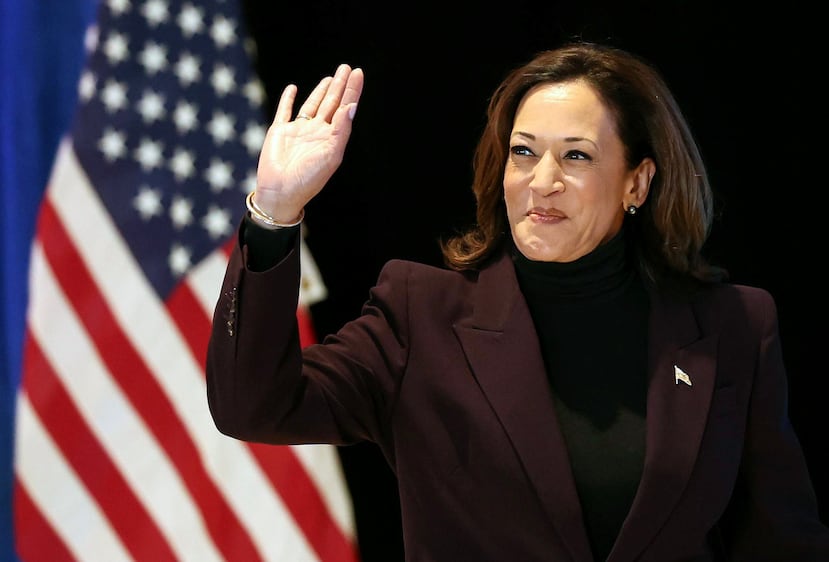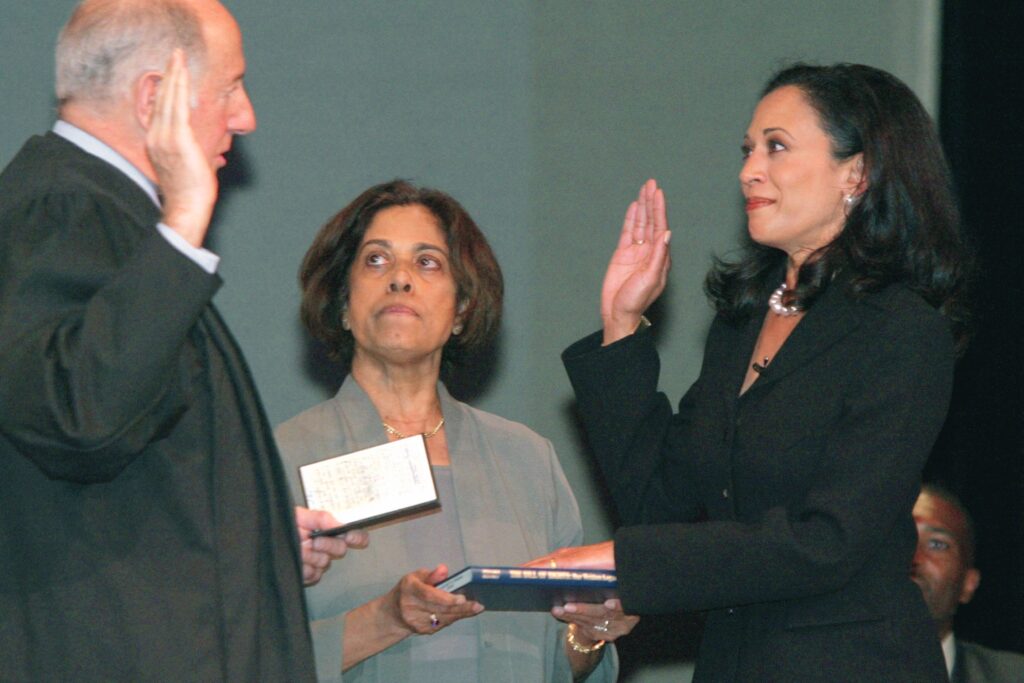Kamala Harris Highlights Her Parents in DNC Speech: A Look at Her Family Roots

Vice President Kamala Harris emphasized her identity as the daughter of two immigrants in her speech at the Democratic National Convention in Chicago, crediting her parents, Shyamala Gopalan and Donald Harris, with shaping her worldview as she pursues the presidency.
Kamala began by paying tribute to her mother, Shyamala Gopalan, a renowned cancer researcher who immigrated from India. Describing her as “tough” and “courageous,” Kamala shared how her mother’s experiences influenced her own path. “My mother was a brilliant, five-foot-tall brown woman with an accent,” she said, noting how her mother’s resilience in the face of adversity inspired her.
After Kamala’s parents separated during her elementary school years, her mother took on the primary role in raising her. Kamala also spoke about her father, Donald Harris, an economist who immigrated from Jamaica. He taught her to be fearless, often reminding her, “Don’t let anything stop you.”

Growing up in California, Kamala embraced her African American identity while also staying connected to her Indian roots. She would later attend Howard University, a historically Black college, where she joined Alpha Kappa Alpha, a Black sorority, further cementing her sense of identity.
Shyamala Gopalan: A Trailblazer in Cancer Research
Kamala’s mother, Shyamala Gopalan, arrived in the United States from India at the age of 19 with a dream of curing breast cancer. After earning a PhD from the University of California at Berkeley in 1964, she became a prominent breast cancer researcher, working at institutions such as McGill University. Kamala described her mother as a “trailblazer in the fight for women’s health.”
The Meeting of Shyamala Gopalan and Donald Harris
Shyamala was initially expected to return to India for a traditional arranged marriage, but fate had other plans. While pursuing advanced degrees at Berkeley in the 1960s, she met Donald Harris, a student from Jamaica. The two fell in love, got married, and became parents to Kamala and her sister Maya. Their involvement in the civil rights movement deeply influenced Kamala, who grew up immersed in its ideals. Her mother taught her not to complain about injustice but to take action against it.
Navigating a Bicultural Identity
Shyamala ensured that her daughters were connected to their Indian heritage by taking them to Chennai, cooking Indian meals, and adorning them with Indian jewelry. Yet, she was acutely aware that in America, her daughters would be seen as Black. In her memoir, The Truths We Hold: An American Journey, Kamala wrote that her mother was determined to raise them as confident, proud Black women.
Donald Harris: A Pioneering Economist
Kamala’s father, Donald Harris, made significant contributions to Jamaica’s economy. He was awarded the Order of Merit, Jamaica’s third-highest national honor, for his work in economic reform. Donald, who later became the first Black person to be granted tenure in Stanford’s economics department, also made sure his daughters were exposed to their Jamaican heritage, taking them on trips to his homeland.
A Legacy of Advocacy and Justice
Kamala Harris’s upbringing, shaped by her parents’ diverse backgrounds and strong sense of justice, laid the foundation for her career. Her mother’s dedication to civil rights and her father’s encouragement to be fearless inspired Kamala to pursue law and eventually, politics. Kamala’s commitment to justice was also influenced by her high school best friend, Wanda Kagan, whose experiences with abuse motivated Kamala to become a prosecutor to protect others.
Kamala’s speech at the DNC was not just a reflection of her personal journey but also a tribute to her parents, whose legacy continues to guide her as she seeks to make history as the first woman, Black woman, and Asian American president of the United States.